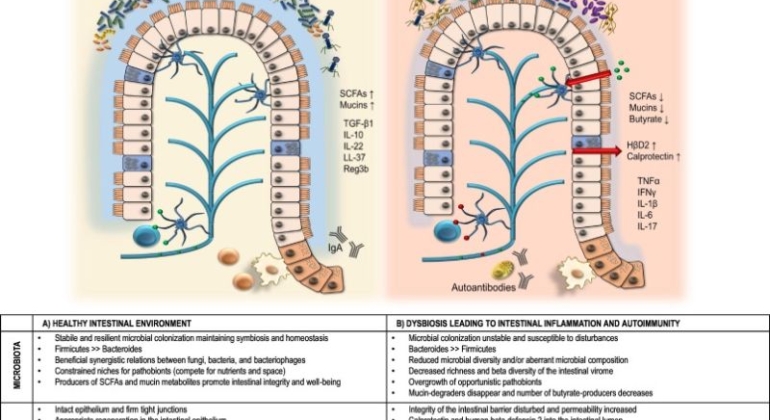In the intricate world of the human body, there exists a bustling community of microorganisms, commonly referred to as the microbiota. These tiny residents, numbering nearly 40 trillion strong, are composed of thousands of species, including bacteria, fungi, and viruses. They reside in various parts of our body, but the majority, over 97%, find their home in our gastrointestinal tract, especially in the colon. This group is aptly named the “gut microbiota,” and it plays a crucial role in maintaining our body’s balance and stability.
However, when this delicate balance is disrupted, a condition known as “gut dysbiosis” occurs. This disruption leads to a less diverse and potentially harmful microbiota, and it has been linked to various health problems, including cancer. Let’s explore how dysbiosis can create an environment favorable for cancer growth.
The Microbiota and Cancer
Researchers have discovered that our gut microbiota can impact cancer in several ways. One of these is through direct contact with the gastrointestinal tract’s mucosal surface. Imagine these microorganisms as tiny troublemakers that, when things go awry, can lead to genotoxic effects (DNA damage), excessive cell growth, loss of cell organization, and even changes in cell type. All of these changes can increase the risk of cancer.
Furthermore, these gut microbes can also interact with our immune system. They can stimulate the development of specific immune responses that may promote cancer growth. Conversely, they can dampen the immune system’s ability to fight off cancer cells.
Contact-Independent Effects
But the influence of our gut microbiota doesn’t stop there. Some microbial molecules can enter our bloodstream, affecting parts of our body far from the gut. These molecules can directly promote the development of cancer in distant organs or indirectly weaken our body’s defenses against cancer.
For example, substances like lipoteichoic acid (LTA) and deoxycholic acid (DCA), which are produced by certain gut bacteria, have been found to contribute to the development of liver cancer. They can translocate into the liver through circulation, and once there, they play a role in promoting cancer growth.
The Big Picture
So, in simpler terms, here’s how it works: When our gut microbiota is in harmony, it helps keep our body healthy. But when things go wrong, it can create an environment where cancer is more likely to thrive. These microorganisms can directly damage our DNA, encourage abnormal cell growth, and even interfere with our immune system’s ability to combat cancer.
Moreover, some of their byproducts can travel through our bloodstream to other parts of our body, making it easier for cancer to develop there as well. This intricate relationship between our gut microbiota and cancer is still being explored, but it’s clear that maintaining a healthy balance of these tiny inhabitants is essential for our overall well-being.




